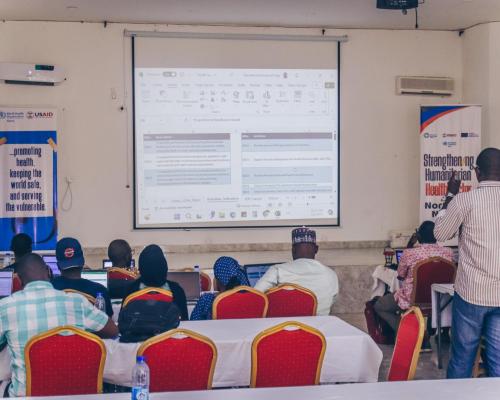
In Borno, Adamawa, and Yobe States, at least 7.9 million people are in need of urgent support as a result of the humanitarian crisis.
Of the millions of people subjected to the crisis, the humanitarian response plan aims to target at least 4.4 million people in the BAY states, cutting across critical sectors such as health, nutrition, food security, protection, water and sanitation, etc.
With activities being rolled out across these sectors, the health sector specifically under the leadership/guidance of the World Health Organization (WHO) as the global health lead, is re-strategizing to ensure underserved populations in critical conditions are prioritized and reached with essential health services. This includes those living in hard-to-reach locations, and strengthening local capacities to further build the resilience of the health system as well as the linkages with peace and development programs.
This strategic approach with funding support from the United States Agency for International Development’s (USAID) Bureau for Humanitarian Assistance (BHA) and the European Commission Humanitarian Aid (ECHO), includes the review of the health sector 2023 response activities/achievements, development of tools for effective collection of data, enhancing partner’s capacity, fostering of localization, ensuring accountability to the affected population, and enhancing LGA level coordination.
Speaking on the vital role the health sector will continue to play in reaching vulnerable populations with healthcare services, the Borno State Honourable Commissioner for Health, Prof. Baba Gana says, the health sector is undoubtedly the most critical sector to achieving Universal Health Coverage. I am optimistic that the World Health Organization (WHO) will continue to coordinate partners to ensure effectiveness and efficiency in supporting more people’s access to healthcare services.
“The commitment shown by the World Health Organization (WHO) to leading and strengthening the humanitarian health sector is in line with its Fourth (4th) Country Corporation Strategy (CCSIV), and the Humanitarian Response Plan 2024. The aim is to support the Federal Government in achieving its goal outlined in the Nigeria Health Act (2014), the Nigeria Health Sector Improvement Initiative (2023-2026) and the 2024 States Plan of Action for the Health Sector, says Dr Walter Kazadi Mulombo, Country Representative, WHO Nigeria
Dr Walter added that, this strategic move is part of the overall Sector Wide Approach (SWAp) to ensure no one is left behind and health for all is achieved.
“Everyone deserves access to health service, and the World Health Organization (WHO) is committed to leading the humanitarian health partners to contributing to the overall objectives of the Sector Wide Approach (SWAp).
The SWAp has 13 health sector priorities which is being championed by the Federal Government with support from the World Health Organization (WHO) and partners to ensuring vulnerable persons access basic healthcare services.
Meanwhile appreciating the World Health Organization, the Director of Research, Planning and Statistics of the Yobe State Ministry of Health, Dr Musa Sarki, on behalf of the Honourable Commissioner for Health and the Adamawa state, Director of Public Health, Dr Isaac Kadala says, despite the hurdles being faced across the globe, the sector has been relentless in ensuring effective coordination among partners and we commend the WHO for its leadership. We look forward to a continual collaboration, to reach underserved populations with healthcare services in the states.
Furthermore, the 2024 Humanitarian Response Plan (HRP) revealed that 5.3 million people require healthcare support in the BAY states. Of these people in need, the health sector is targeting only 3.7 million people with 800,000 (22%) being women and 2.2 million (60%) being children.
Buttressing the Health Sector’s commitment under the leadership of the World Health Organization (WHO), the Health Sector Coordinator for the Humanitarian Response, Dr Pekezou Tchoffo Aurelien says, we intend to prioritize our support rather than business as usual. Therefore, this review/capacity building aims to leverage lessons learnt during the 2023 response activities and develop a more coordinated approach to sustain essential health services to the most vulnerable persons while ensuring complementarity with development partners.
Dr Pekezou further calls on humanitarian donors to urgently support the ongoing health sector activities in the BAY states to save the lives of the vulnerable and to ensure that more people including those in hard-to-reach locations are reached with basic health care services.
“At least $90 million is needed in 2024 for the humanitarian health sector to reach the targeted populations with healthcare services. Although engagements with donors are in top gear, this call is rather urgent, to enable underserved populations, especially children, to have access to healthcare services as part of their basic human right”.
Technical Contact: Dr Kumshida Yakubu Balami – +2349062740627

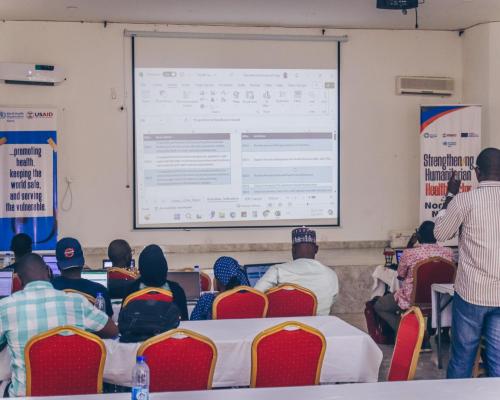
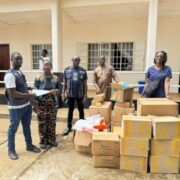
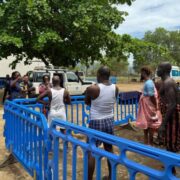
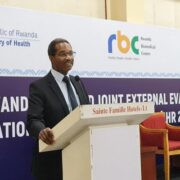
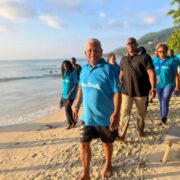
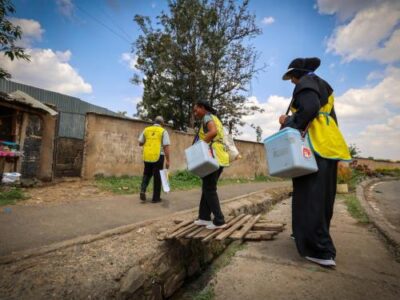
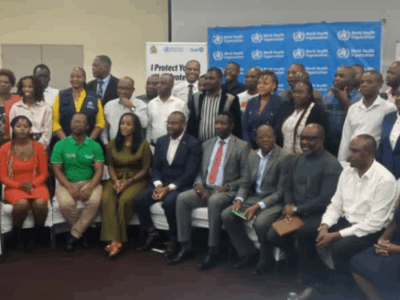
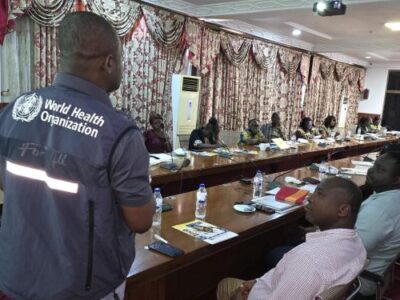
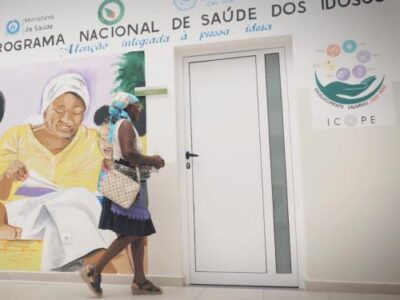

Comments